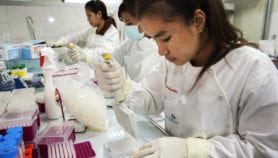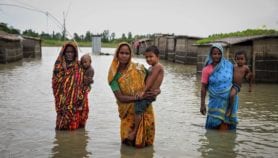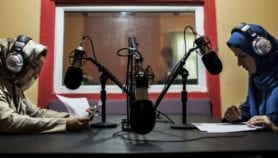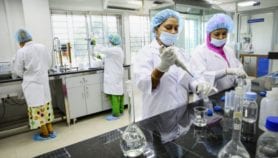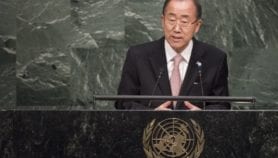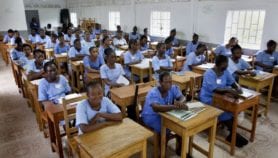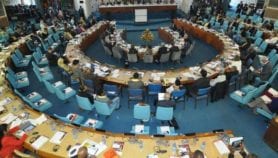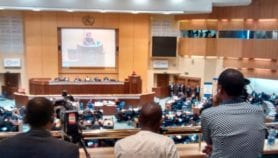By: Mike Shanahan
Send to a friend
The details you provide on this page will not be used to send unsolicited email, and will not be sold to a 3rd party. See privacy policy.
Eliminating global poverty, disease and hunger are "utterly affordable" but need concerted action from rich nations, including a massive increase in funding for scientific research addressing the needs of the world’s poor.
Highlighting the potential for science to increase crop yields and lead to vaccines and medicines against disease such as malaria and HIV/AIDS, the report states that: "The international science community — led by national research laboratories, universities, and national academies of science — must play a critical role in developing the global public goods to overcome these constraints. It must bring to bear its tremendous research capabilities to help solve the tough problems facing developing countries — particularly in the tropics."
"Until now, we did not have a concrete plan for achieving the Millennium Development Goals," said Jeffrey D. Sachs, the economist who directed the three-year UN Millennium Project, in a press release. Sachs added that the goals could still be met if the plan is enacted right now.
"We are in a position to end extreme poverty within our generation," Sachs said. "Not just cutting poverty in half — if we want to eliminate extreme poverty, we can do that by 2025."
Investing in Development was compiled from recommendations generated by ten ‘task forces’ made up of a total of 265 scientists, economists, and other development experts, and edited by Sachs, who is based at the Earth Institute at the University of Columbia in New York, United States.
Their remit was to identify cost-effective ways to achieve the UN Millennium Development Goals by 2015. The goals include combating malaria and HIV/AIDS, reducing infant mortality, and eradicating extreme hunger and poverty.
Implementing the full range of recommendations would cost just one-half of one per cent of the incomes of rich countries — a figure well within international aid targets already agreed by industrialised nations.
Nonetheless, meeting the goals will still require a substantial increase in funding both from developing countries themselves and in overseas aid. The latter, says the report, will need to increase by US$48 billion from existing commitments to US$135 billion in 2006, and continue rising to reach US$195 billion by 2015.
Another recommendation is that rich and poor nations immediately undertake ‘quick win’ actions that can save millions of lives for little cost. Such actions include providing free solar power generators for schools and hospitals, antiretroviral AIDS drugs, and US$5 bed nets to reduce the impact of malaria.
The report urges poor countries to adopt "bold" development policies, which should be in place by 2006.
Mark Malloch Brown, Kofi Annan’s incoming chief of staff and chairman of the United Nations Development Group described the task forces’ work as "the biggest intellectual contribution to the development debate from the UN system in at least 20 years".
Malloch Brown added that by reducing global poverty, threats to global security might also be addressed.
Breakdown of funding for global research (2003 US$ billions)
| 2002 | 2006 | 2010 | 2015 | |
|
Public health |
0.3 | 2 | 4 | 4 |
|
Agriculture and natural resource management |
0.4 | 1 | 1 | 1 |
|
Low-cost and sustainable energy technologies |
0.1 | 1 | 1 | 1 |
|
Adaptation to long term climate change in developing countries |
0.1 | 1 | 1 | 1 |
| Total | 1.0 | 5 | 7 | 7 |
Link to the report Investing in Development (in English, Spanish, Arabic, Chinese, French, Russian)


